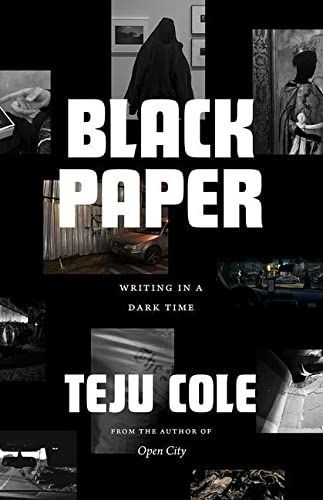
Black Paper Writing in a Dark Time
"In Black Paper, Teju Cole meditates on what it means to keep our humanity--and witness the humanity of others--in a time of darkness. "Darkness," Cole writes, "is not empty." Through art, politics, travel, and memoir, he returns us to the wisdom latent in shadows, and sets the darkness echoing. The opening essay sets the mood for the book, as Cole travels to southern Italy and Sicily to view a series of Caravaggio paintings. He ponders the suffering that Caravaggio ("a murderer, a slaveholder, a terror, and a pest") both dealt out and experienced, and the disquieting echoes of that suffering in the abandoned boats of migrants arriving on nearby shores. This collection also gathers several of Cole's recent columns on photography for the New York Times Magazine and offers a suite of elegies to lost friends who show him--and us--ways of mourning in times of death"--
Reviews
Stephen Schenkenberg@schenkenberg
Highlights
Stephen Schenkenberg@schenkenberg
Page 28